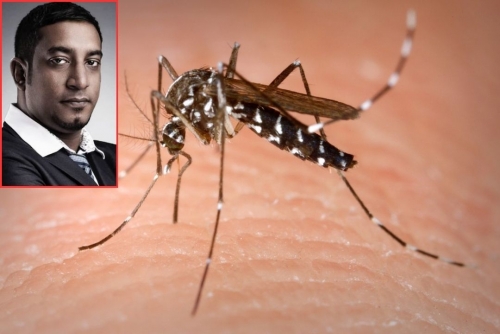Bahrain is facing a pressing issue with the presence of dangerous mosquito species, which can potentially lead to the transmission of diseases like dengue fever, Zika virus, and malaria. Khalid Bu Rshaid, a health pest control expert, has pointed out that the kingdom is home to approximately four types of these insects, creating a major concern for public health. Over the past few years, Bahrain has witnessed a significant increase in mosquito populations, especially during the rainy season, which provides ideal breeding conditions due to humidity and stagnant water.
To address this problem effectively, Bu Rshaid has called for intensified spraying campaigns in areas where water collects, as stagnant water exacerbates the issue and contributes to the proliferation of mosquitoes. He emphasized the importance of proactive measures ahead of the rainy season to limit the spread of these pests and ensure the health and safety of citizens. Areas like Tubli Bay, Al Lawzi, and Al Buhair have been identified as hotspots for mosquito breeding due to stagnant water collections, requiring immediate spraying to control the infestation.
Bu Rshaid highlighted the need for implementing effective strategies, such as improving drainage systems and eliminating stagnant water, to combat mosquito infestations effectively. Rising temperatures and humidity in Bahrain create favorable conditions for the breeding of these mosquito species, necessitating community awareness and education programs to reduce associated risks. While complete elimination of mosquitoes may not be possible, measures like using incense, ultraviolet light traps, and window screens can help in repelling these insects and reducing their spread.
As the rate of mosquito infestation in Bahrain continues to rise, particularly noticeable during rainfall, Bu Rshaid stressed the urgency of taking preventive action to control the spread of these pests. Negligence on part of concerned authorities in implementing essential measures before the rainy season has contributed to the current situation, highlighting the importance of proactive pest control measures. By addressing the root causes of mosquito breeding, such as stagnant water and favorable climatic conditions, Bahrain can effectively tackle this public health issue and protect its citizens from potential disease outbreaks.































